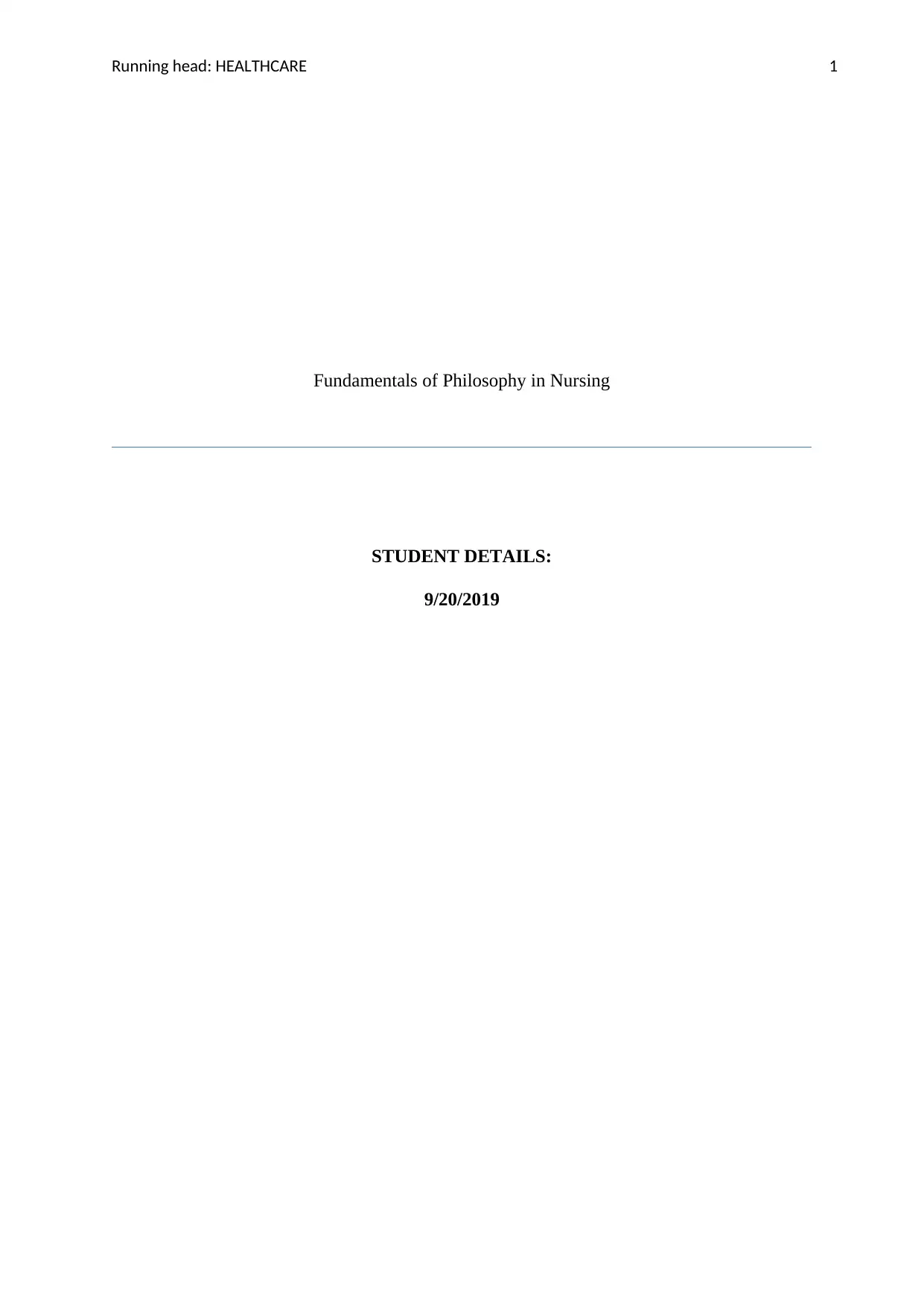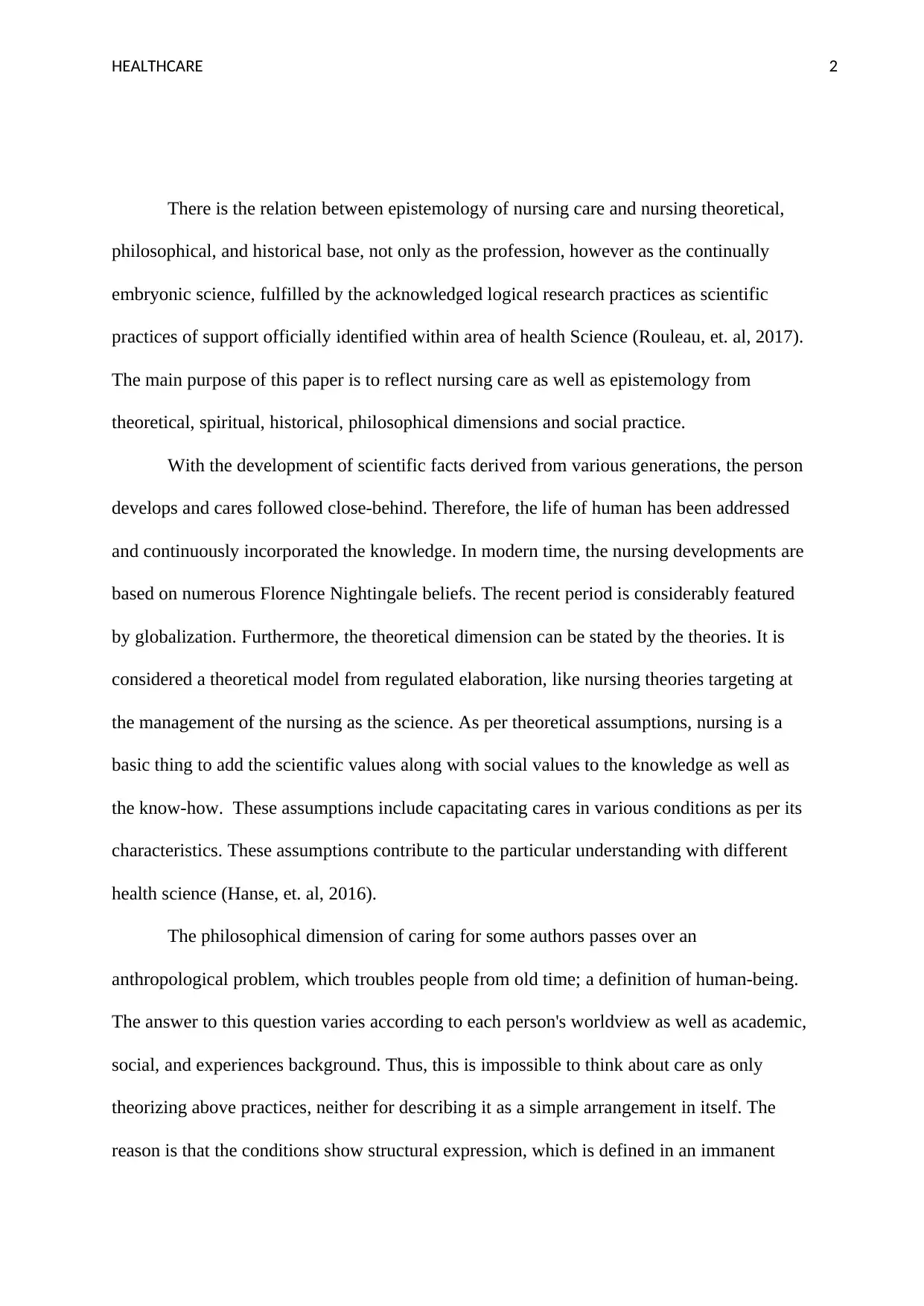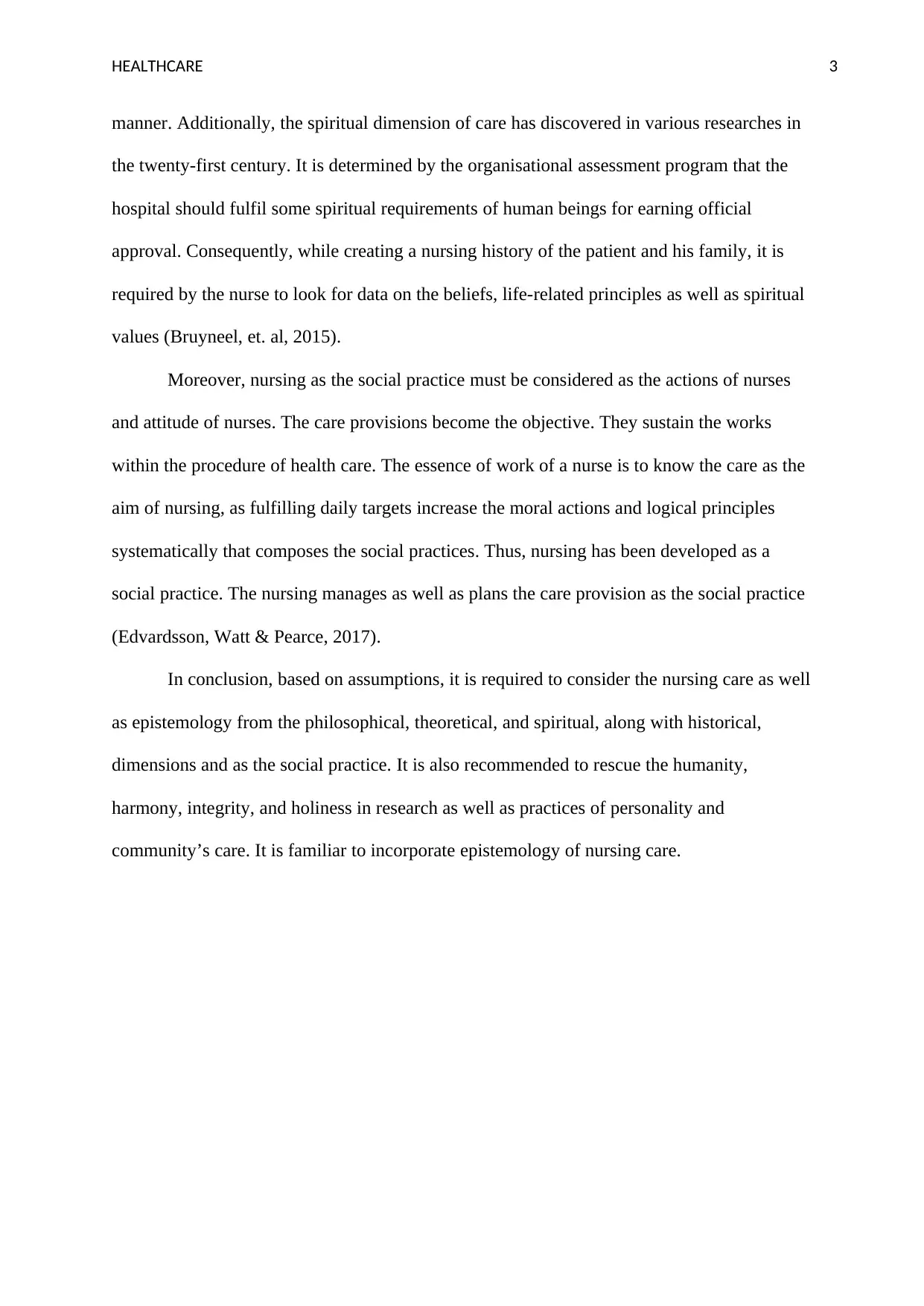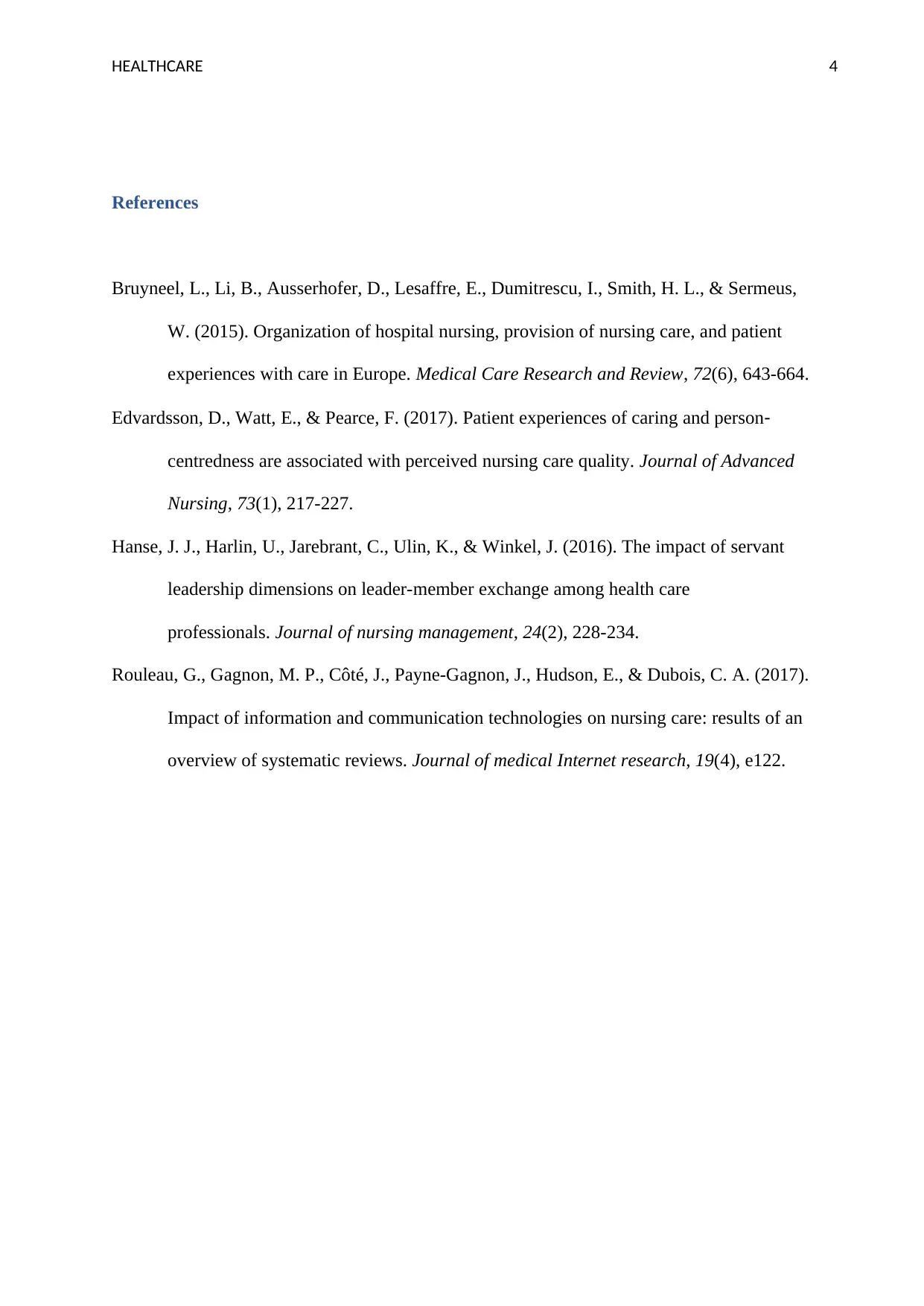Fundamentals of Philosophy in Nursing Care and Epistemology
VerifiedAdded on 2022/11/18
|4
|851
|389
Essay
AI Summary
This essay provides a comprehensive overview of nursing care and its epistemology, examining it through various dimensions. It delves into the historical context, tracing the evolution of nursing practices and beliefs, particularly highlighting the influence of Florence Nightingale and the impact of globalization. The theoretical dimension is explored through nursing theories, emphasizing the integration of scientific and social values. The philosophical dimension is discussed, focusing on the human-being definition and its implications for care. The spiritual dimension is addressed, emphasizing the importance of considering patients' beliefs and values. Finally, nursing as a social practice is analyzed, highlighting the role of nurses' actions and attitudes in delivering care and managing care provisions systematically. The essay concludes by emphasizing the importance of integrating these dimensions to promote humanity, harmony, integrity, and holiness in nursing research and practice.
1 out of 4










![[object Object]](/_next/static/media/star-bottom.7253800d.svg)